What the Bible Says About Racism: Class 2
The Primeval History of Genesis
Genesis 1-11
- The story of God’s restorative work in Creation through Abraham and his family is told from the perspective of the Primeval History, which is about God’s work with all of humanity.
- When we read the first 11 chapters of Genesis we want to be asking ourselves what we’re learning about God’s basic relationship with humanity and creation.
- We want to pay attention to what these chapters are saying about the core problem between God and the world.And for purposes of this class, we want to be listening for clues about the Bible’s outlook on humanity’s divisions or variation.
- What about the different places, languages, religions and behavior of people. What makes a righteous person? A bad one?
The Creation of Humankind: Genesis 1.26-27
Then God said, ‘Let us make humankind in our image, according to our likeness; and let them have dominion over the fish of the sea, and over the birds of the air, and over the cattle, and over all the wild animals of the earth, and over every creeping thing that creeps upon the earth.’ So God created humankind in his image, in the image of God he created them; male and female he created them.
- Adam means humankind
- We see no race, no inferior group, and we all belong to one family.
- Recently this has been confirmed by genetics and anthropology’s “Out of Africa” consensus
- Image of God might mean many things. It certainly implies that humanity is able to communicate and connect with God
- This text forever drives a stake into polygenesis theories of racial difference.
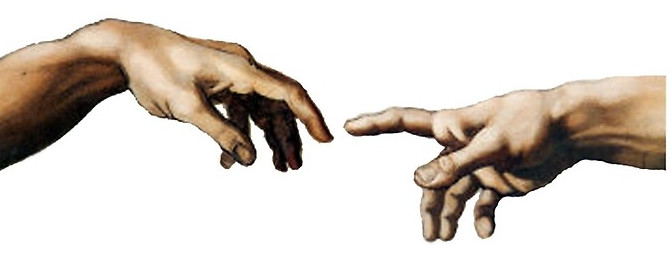
Curse of Ham Genesis 9.18-27
The curse was intended for Canaan, but it has been extended to all of Ham’s descendants.
Genealogies in Genesis
- Note the complexity
- It’s difficult to look at this and see chosenness strictly applied to a family.
- The pivotal people seem to be individuals who are particularly faithful.
- The descendants all morph into nations, or peoples, lands
- The genealogies provide the skeleton for the entire book.
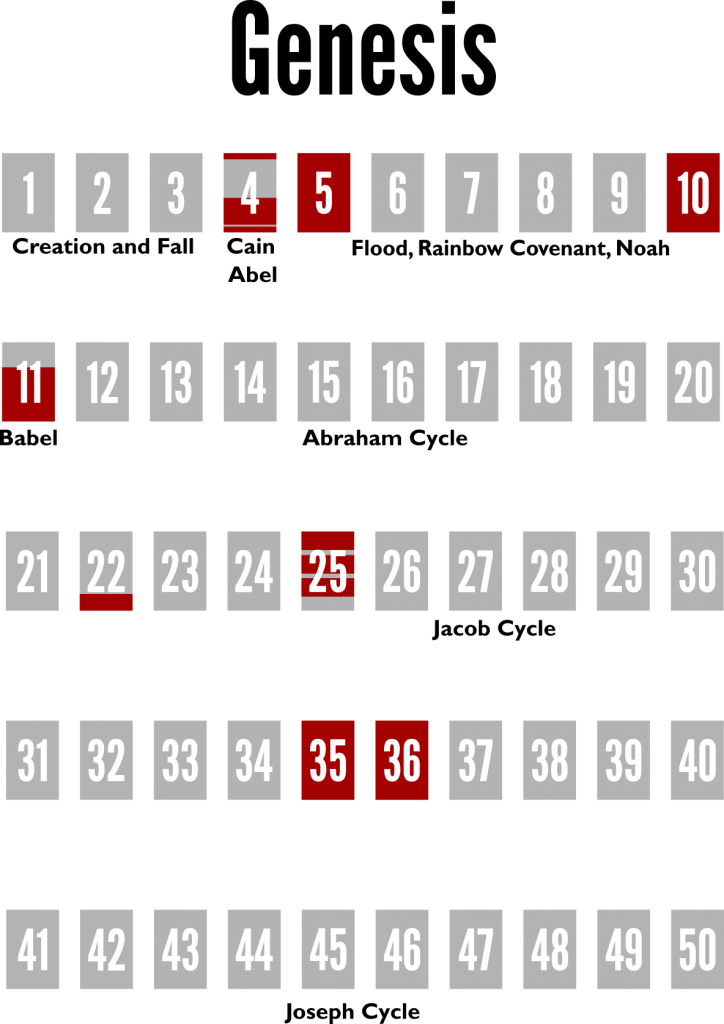
Genealogies in Genesis
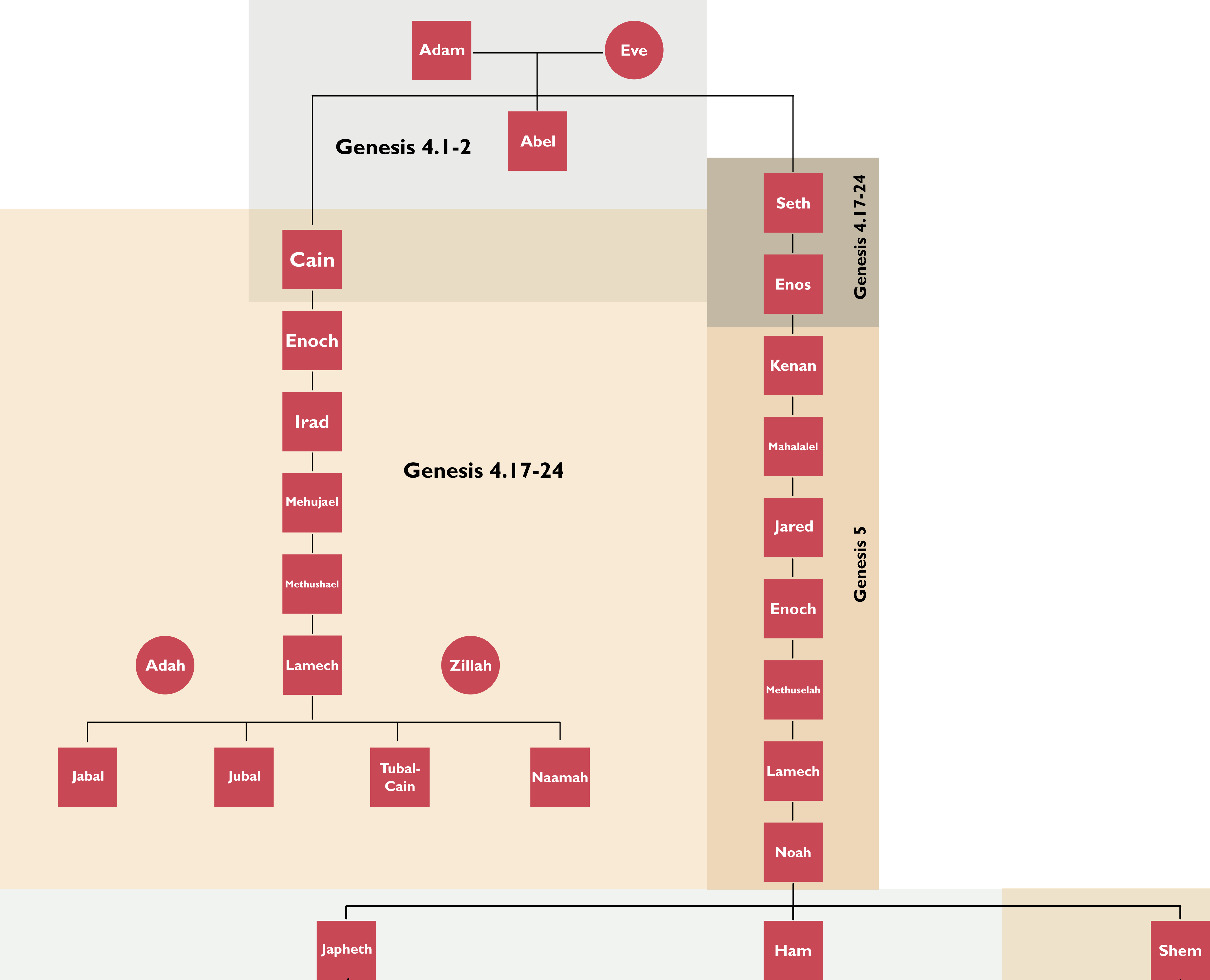
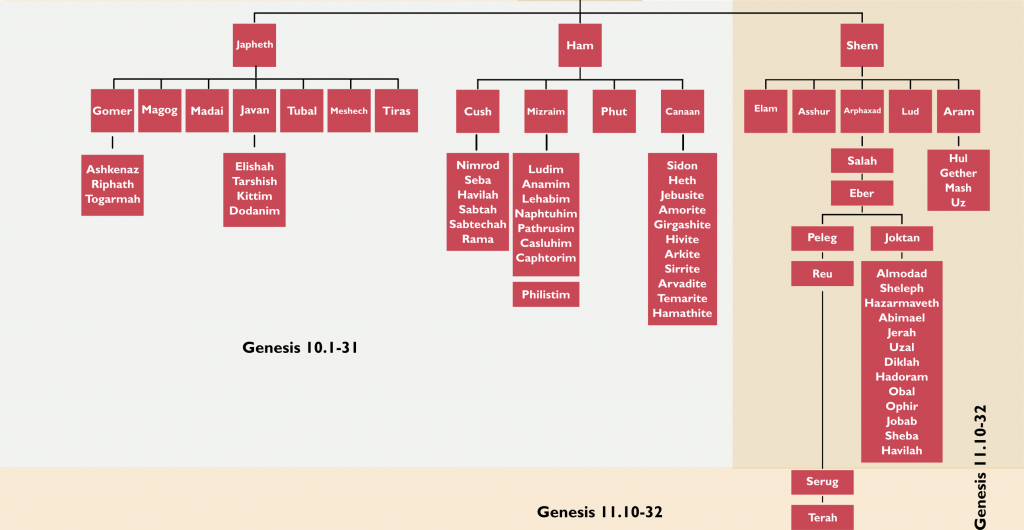
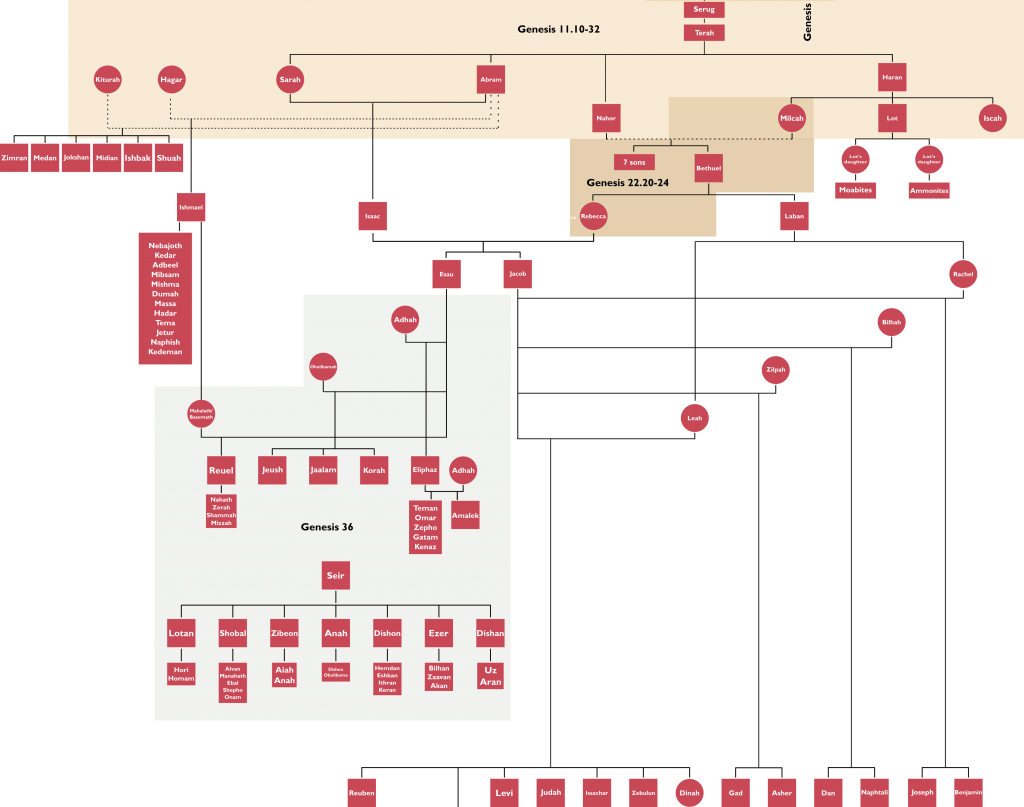
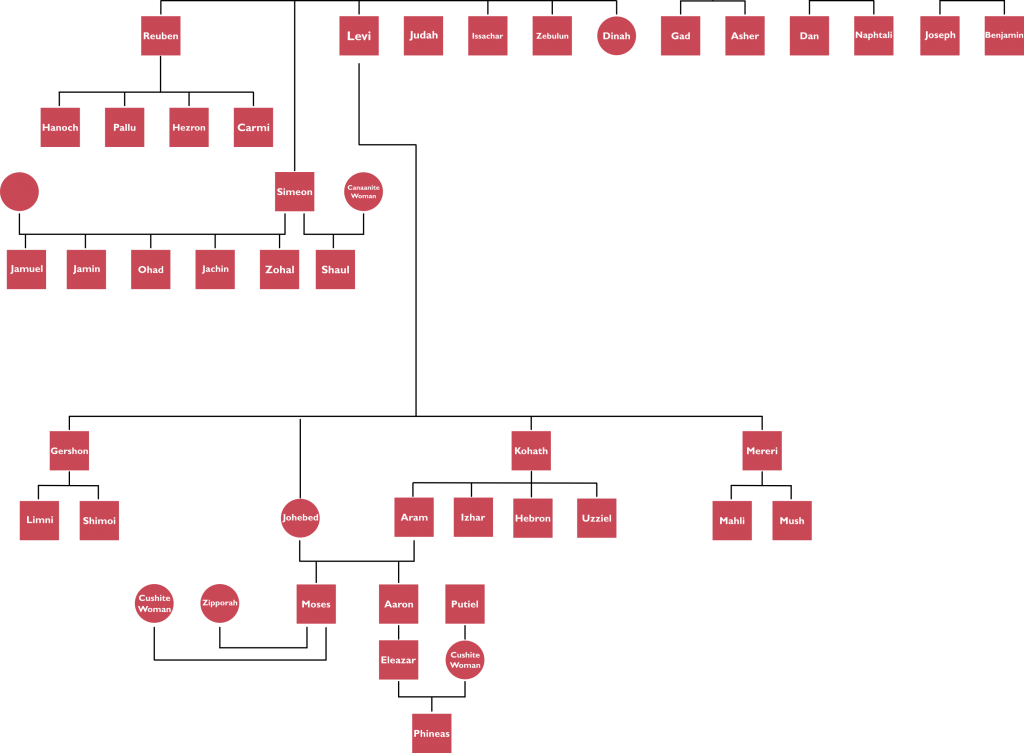
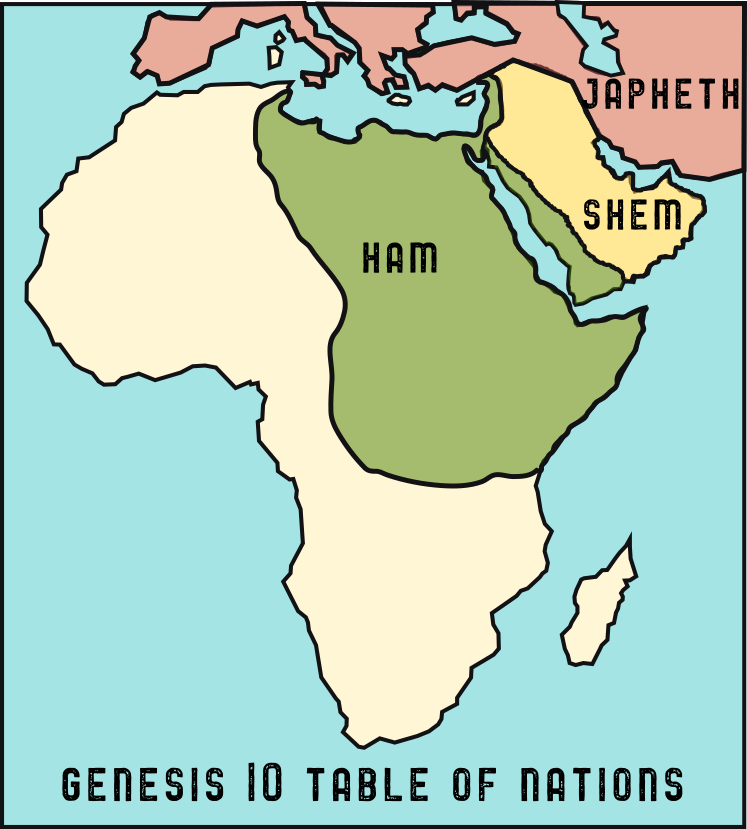
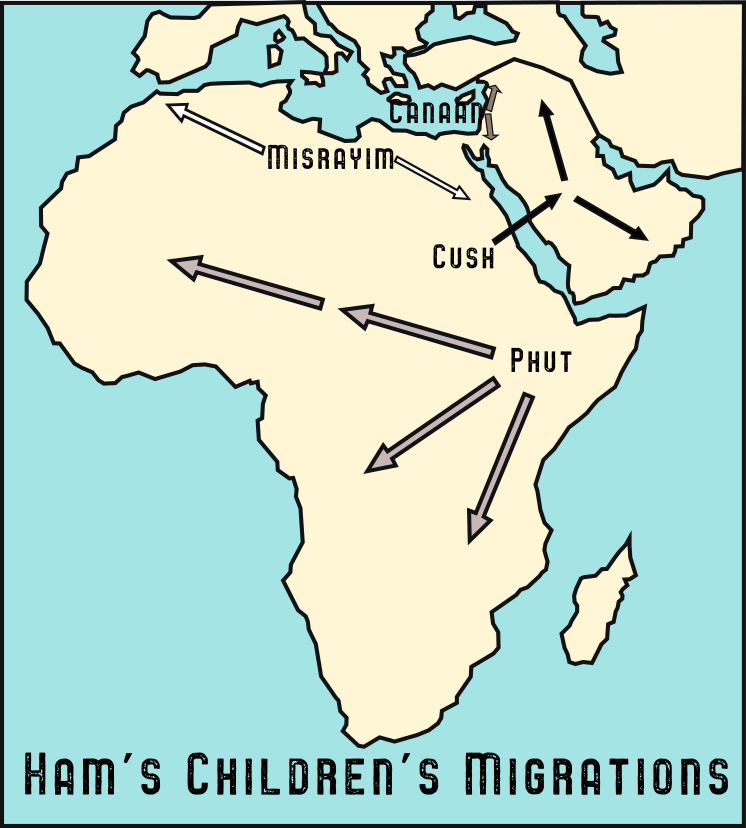
Tower of Babel Genesis 11.1-9
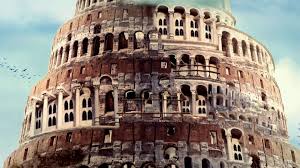
Now the whole earth had one language and the same words. And as they migrated from the east, they came upon a plain in the land of Shinar and settled there. And they said to one another, ‘Come, let us make bricks, and burn them thoroughly.’ And they had brick for stone, and bitumen for mortar. Then they said, ‘Come, let us build ourselves a city, and a tower with its top in the heavens, and let us make a name for ourselves; otherwise we shall be scattered abroad upon the face of the whole earth.’ The Lord came down to see the city and the tower, which mortals had built. And the Lord said, ‘Look, they are one people, and they have all one language; and this is only the beginning of what they will do; nothing that they propose to do will now be impossible for them. Come, let us go down, and confuse their language there, so that they will not understand one another’s speech.’ So the Lord scattered them abroad from there over the face of all the earth, and they left off building the city. Therefore it was called Babel, because there the Lord confused the language of all the earth; and from there the Lord scattered them abroad over the face of all the earth.
If there are differences and alienation between peoples it is due to human sinful hubris.
This is the condition of humanity—scattered, not speaking to one another—that Abraham is called to help correct.
The Call of Abraham Genesis 12. 1-3
Now the Lord said to Abram, ‘Go from your country and your kindred and your father’s house to the land that I will show you. 2I will make of you a great nation, and I will bless you, and make your name great, so that you will be a blessing. 3I will bless those who bless you, and the one who curses you I will curse; and in you all the families of the earth shall be blessed.’
Linkage of word family here with the multiple uses of the word in the 10th chapter. (Genesis 10.5, Genesis 10.20, Genesis 10.31, Genesis 10.18, Genesis 10.32).
The Book of Revelation shows that this promise is still operative at the culmination of all things. Revelation 5.9; Revelation 7.9; Revelation 11.9; Revelation 14.6)
Conclusions:
- Genesis’ early chapters, the Primeval History, deeply undercut any idea of divisions or ranking of certain groups in the human family. In fact, the Bible asserts twice that all people come from one source.
- The Biblical saga of redemption begins to come into view with Abraham’s encounter and commissioning by God. The redemption can be summed up as a reversal of the division of humankind that happened in the Tower of Babel story.
- While it is true that God picks individuals who will carry forward the work of redemption, there does not appear to be a category of humanity that God favors. Israel is anything but a genetically pure nation.
- The various dramas in Genesis are linked together by genealogies which serve to dramatize the oneness of all of humanity.
